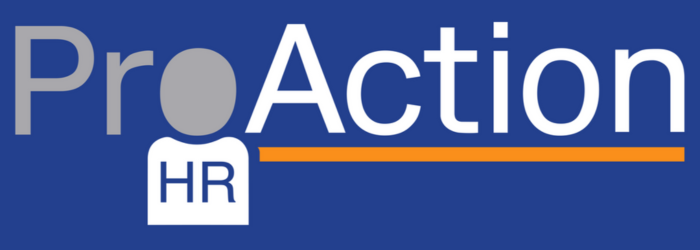The Value of Mediation: Reflections from a Decade in the Role
What’s the first thing you think when you hear the term “workplace conflict”? There’s probably a good proportion of you thinking “That never ends well!” and are just hoping it’s not happening at your workplace. But after ten years as an accredited mediator, Andy Cast would encourage you to think again.
After ten years of providing mediation services, I can tell you that conflict at work is inevitable, but it doesn’t have to be destructive. In fact, I’ve seen first-hand how it can become a catalyst for growth, better relationships, and stronger teams – if it’s handled the right way.
When people hear the word “conflict”, they often picture arguments, stand-offs, and blame. But for me, interpersonal conflict is simply a signal that something needs attention. It’s like a warning light on a dashboard – annoying, yes, but also an opportunity to prevent something worse from happening. And that’s where mediation comes in.
Over the past decade, I’ve sat with senior managers on the brink of quitting, colleagues who’ve stopped speaking, and team members feeling hurt, disrespected, or misunderstood. I’ve watched these same people walk out of mediation sessions with relief on their faces and fresh perspectives in their minds. No, it doesn’t always end with a ‘perfect solution’, sometimes the best we can do is aim for a ‘minimum viable outcome’, but it often ends with something far more important: clarity, respect, and a renewed sense of possibility.
If you’ve ever wondered what mediation is really like – or how it could help you or your team – here’s an honest view from someone who’s been in the room.
What Is Mediation at Work (and What It Isn’t)
When people first hear the word “mediation”, they often picture something formal, procedural, and a bit intimidating. But it’s not like that at all. Mediation isn’t a courtroom, and I’m not a judge.
My role as a mediator is to create a space where people can have the conversations they’ve been avoiding. I don’t decide who’s right or wrong. I don’t make anyone do anything they don’t want to do. I’m there to listen, guide the process, and help people find their own solutions.
Mediation is:
Voluntary – Nobody is forced to participate, and anyone can leave at any point.
Confidential – What’s shared stays in the room. No notes are passed back to HR or management (unless both parties agree).
Fair and neutral – I’m not there to take sides. I’m there to support everyone equally.
Future-focused – While we acknowledge the past, we focus on how people want to work together moving forward.
Mediation isn’t about blame, punishment, or ‘winning’. It’s about working out how to move past a sticking point, together.
How Mediation Works (From My Perspective)
Every mediation is different, but there’s a general flow to the process. Here’s how I typically approach it:
One-to-one sessions – I meet with each party separately. This is a space for them to get everything off their chest – frustrations, hopes, fears, and everything in between. People are often surprised at how much they say when given a chance to speak without interruption, not to mention how much better they feel when someone listens to them without any judgement or rebuttal.
The joint meeting – I bring the parties together in a controlled, structured space. This is where people tell their side of the story – and listen to the other side. My role here is to create safety. I make sure everyone has a fair chance to speak and feel heard.
Problem-solving – We shift the focus from ‘what went wrong’ to ‘what happens next.’ This is where people identify shared goals, agree on changes in behaviour, and (sometimes) apologise, although we never look to assign blame.
The agreement – If there’s an agreement, I document it clearly. It’s not legally binding, but it is a moral commitment. Everyone leaves knowing what’s expected of them.
This process isn’t magic, but it is powerful. People arrive feeling defensive, angry, or stuck. But once they have the chance to be truly heard – not just listened to but understood – something shifts.
Case Studies: Real Stories from the Mediation Room
Over the years, I’ve seen all kinds of conflict. Some are quick fixes; others are deeply entrenched. Here are two cases that stand out to me.
Workplace Conflict Case 1: Senior Managers’ Working Relationship Breaks Down
Two senior managers hadn’t spoken properly in months. Their team collaboration was suffering as a result. What had started as a disagreement about project priorities had turned into avoidance, resentment, and outright hostility. They wouldn’t even join the same Teams calls.
In our one-to-one sessions, it became clear that both were under enormous pressure, but neither had communicated it. J felt S was dismissive of his ideas; S felt J was unresponsive and disorganised.
During the joint meeting, I asked each of them to share, uninterrupted, how the situation had affected them. This was a turning point. For the first time, they really heard each other. S realised J wasn’t being difficult – he was stretched too thin. J realised S wasn’t dismissing him – she was feeling abandoned.
By the end of the session, they’d agreed on three key actions: clearer communication on deadlines, a weekly check-in, and a shared approach to project planning. The tension lifted and the relationship began to heal.
Workplace Conflict Case 2: Employees’ Behaviour Impacts Team Morale
This one involved two frontline customer service employees. A believed M was lazy and unmotivated. M believed A was controlling and overbearing. The result? Constant bickering, eye rolls, and snarky comments that were starting to affect team morale.
When I met with them individually, a different picture emerged. A felt she was carrying too much of the workload. M, it turned out, was dealing with a personal issue at home but hadn’t felt able to share it.
When we brought this into the joint session, I asked them to think about what support they each needed to feel respected at work. For A, it was a clearer understanding of who was responsible for what. For M, it was flexibility and compassion during a tough personal period.
Their final agreement included a commitment to split tasks more fairly and a promise from A to ‘ask before assuming’. M committed to being more transparent about personal challenges that might impact work.
This is why I love this work. It’s not about grand, sweeping changes. It’s about small shifts in understanding that lead to big changes in relationships.
Resolving Workplace Conflict: What I’ve Learned After 10 Years of Mediation
If I had to sum up a decade of mediation experience in one insight, it would be this: people don’t usually want to ‘win’ – they just want to feel heard and respected.
Sure, people enter mediation with complaints, grievances, and frustrations. But underneath all of that, there’s a desire for clarity, connection, and fairness. The power of mediation isn’t in ‘fixing’ people – it’s in giving them space to see each other differently.
I’ve also learned that most people are more willing to change than they think. The trick is helping them realise it for themselves. I’m not there to ‘solve’ the problem for them. I’m there to help them see a way forward they couldn’t see before.
Why Mediation at Work Matters
So, is mediation worth it? I think so, and not just because it’s my job. I’ve seen what happens when conflict goes unchecked: stress, resignations, fractured teams, and good people leaving jobs they loved.
Mediation doesn’t ‘fix’ everything, but it often repairs what matters most – trust, respect, and communication. Imagine walking into work knowing that the air is clear, that people are aligned, and that you’re working towards shared goals again. .
After ten years of doing this work, I can tell you even the most ‘impossible’ conflicts can be resolved. It just takes a little courage, a little patience, and a willingness to have that first honest conversation.
If you think you, or someone you know, could benefit from our mediation services get in touch for confidential conversation, with no obligation.
Andy Cast is an accredited mediator, coach and counsellor at ProAction HR, providing Learning & Development, coaching, mediation and grievance investigation services to businesses in Southampton, Winchester and throughout Hampshire and the adjoining counties.
Andy began his 30 year career with over 15 years in retail management before moving into HR, putting his customer service and commercial experience to good use.
His specialities include: Individual & Team Leadership & Management Development, 1-2-1 Executive Coaching, Group Coaching, Employee Engagement, Health & Wellbeing, Equality, Diversity, Inclusivity and Learning strategy creation & implementation.
“Helping organisations to thrive on the value & uniqueness of their people.”



